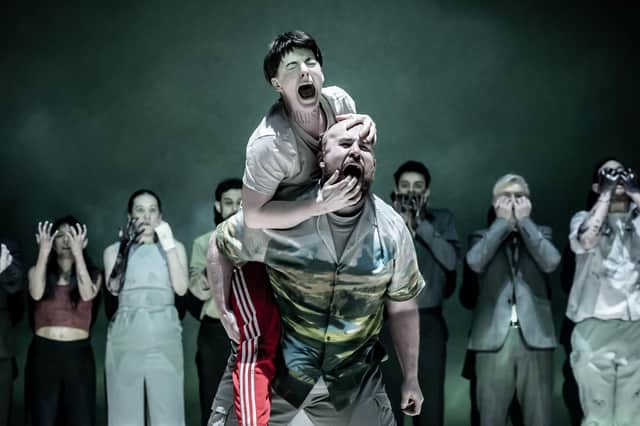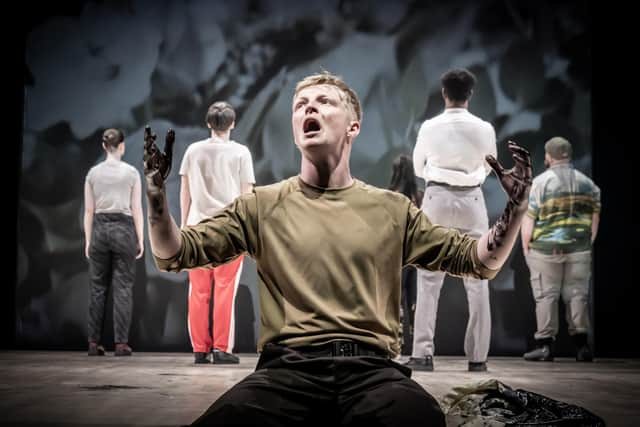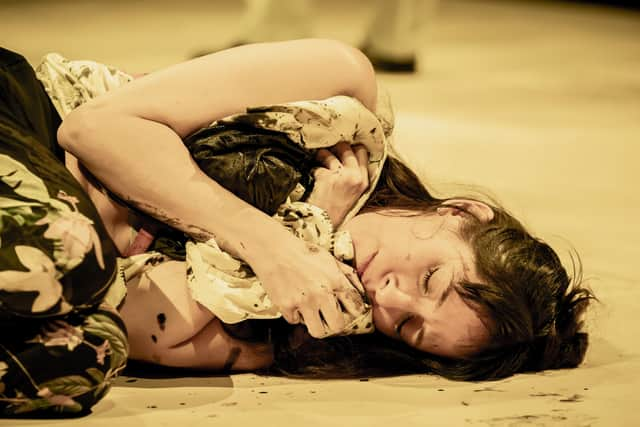Review: RSC's Julius Caesar is lean, hungry and urgent on Stratford stage


Julius Caesar was wary of those who looked lean and hungry. Undaunted, the RSC has given us a lean and hungry Julius Caesar; and while the result is often thrilling, it may leave some wanting more.
This is Atri Banerjee’s directorial debut for the company, and it is quite a statement. It is a fast, frantic and feverish affair, conjuring moods and atmospheres rarely known in this theatre.
Advertisement
Hide AdAdvertisement
Hide AdThe play tells of a group of Roman senators, led by Brutus and Cassius, who plot to assassinate Caesar, fearing his growing power and ambition. Despite warnings from a soothsayer and his own wife, Caesar is ultimately betrayed and stabbed to death. The aftermath leads to a power struggle in Rome and the eventual downfall of his conspirators.


This production dispenses with togas, laurel wreaths and anything grand or pompous. It is sharp and modish, but never crass or inelegant; to its credit, it makes the play seem like it was written last week. The emotional tone is set by a mesmerising and disquieting opening, combining tense, anxious and eerie dance, animalistic shrieks, unsettling avant-garde music and projections depicting nature’s grotesquery. It will not be to everyone’s taste but it is undoubtedly powerful.
The decision to cast actors irrespective of their gender is vindicated pretty much immediately, too. Cassius is played by Kelly Gough with a fierce urgency; she has the zeal of the ideologue with the nous of the spin doctor. But the show really belongs to Thalissa Teixera as Brutus; she makes the notion of killing for one’s beliefs seem disturbingly normal, even kind.
Elsewhere, William Robinson is a wiry and slippery Mark Antony, Nigel Barrett a sturdy and avuncular Caesar and Gina Isaac a thoughtful Decius Brutus. Annabel Baldwin’s Soothsayer meanwhile seems like the production’s aesthetic and emotional heart: keenly passionate, yet haunted.
Advertisement
Hide AdAdvertisement
Hide AdThe play presents challenges to any director. It is packed with incident and intrigue until the end of Mark Antony’s “Friends, Romans, Countrymen” speech, after which far less happens. There is however still much of the play to go. Banerjee manages this problem deftly, placing almost all the action, including said speech, before the interval; this makes for a long first half but gives the aftermath its own potency. The prevailing mood of the second half is sadness; the hope of the first half soon feels appallingly distant, a kind of treachery of the spirit. There is beguiling and beautiful colour, but it comes from the dead.


Banerjee’s direction, complemented by the striking work of designer Rosanna Vize, certainly holds the attention. But a few things are inevitably lost. The naturalistic delivery makes some sublime poetry sound mundane; there is little time and space for relationships to develop believably; the tone is in danger of growing monotonous; a certain richness is sacrificed for pace.
But as theatre, it is a triumph. The strange night before Caesar’s death feels genuinely disconcerting; the pause after his death is astonishing; the anticlimactic ending is courageous and true. And full marks to the community chorus, comprising ordinary local folk; their presence helps ground it all.
Lean and hungry. It’s a good look for the RSC.
Julius Caesar runs until April 8 before going on tour. Visit rsc.org.uk or call 01789 331111 to book.